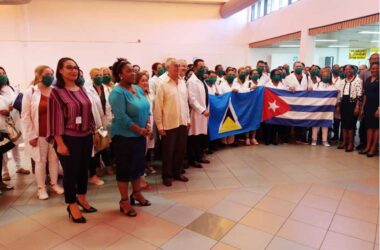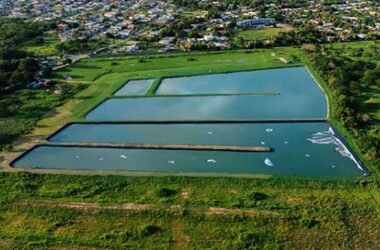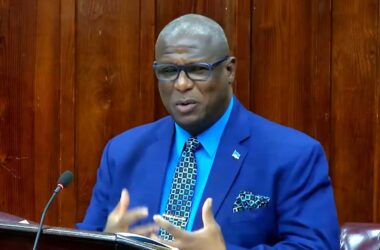THE Organisation of Eastern Caribbean States (OECS) is an international inter-governmental organisation dedicated to economic harmonisation and integration, the protection of human and legal rights, and the encouragement of good governance among independent and non-independent countries in the Eastern Caribbean.
The Organisation was established on 18 June 1981, when seven Eastern Caribbean countries signed a treaty agreeing to cooperate with each other and promote unity and solidarity among the members. The treaty became known as the Treaty of Basseterre, since it was signed in Basseterre, the capital of Saint Kitts and Nevis.
In 2010, the initial treaty was replaced by the Revised Treaty of Basseterre, creating an economic union. This Revised Treaty was signed on 18 June 2010 in Saint Lucia during the 51st Meeting of the Authority of the OECS. The treaty was ratified on 21 January 2011.
The OECS is now an eleven-member grouping comprising the member States of Antigua and Barbuda, the Commonwealth of Dominica, Grenada, Montserrat, Saint Kitts and Nevis, Saint Lucia and Saint Vincent and the Grenadines, and the associate member States of Anguilla, the British Virgin Islands, Guadeloupe and Martinique.
Some notable achievements of the OECS, thanks to closer and deeper arrangements, include:
• A common currency for eight of the eleven member States —duly managed by the Eastern Caribbean Central Bank (ECCB).
• A common judiciary —Eastern Caribbean Supreme Court (ECSC) comprising the Court of Appeal, the High Court of Justice and the magistracy.
• Common procurement of pharmaceuticals.
• Free movement of citizens —citizens of member States which have agreed and passed the appropriate legislation can move, reside and work freely in these States without the need for a work permit or skills certificate. This initiative has contributed significantly to correcting the labour shortages and skills deficiencies experienced by the participating member States. In the same vein, it increases economic opportunities for those entering the labour market.
• A common civil aviation authority —the Eastern Caribbean Civil Aviation Authority (ECCAA).
• The pursuit of harmonized fiscal and monetary policies.
• The adoption of common approaches for the management of the trade, health, education and environment sectors.
• The adoption of common approaches for the development of key sectors, e.g. agriculture, energy and tourism.
A much more closely coordinated and economically advanced OECS with substantially increased per capita incomes would remove the stigma of being considered “poor relations” —inter- and extra-regionally— and provide more economic opportunities for companies and citizens within and outside the OECS. This would be the substantive outcome of the implementation of the Revised Treaty since the latter provides the political, economic and administrative framework and architecture to execute the considerable adjustment required for the successful socioeconomic development of member States’ economies.
The Revised Treaty, which creates an economic union, would provide the political space and the economic environment to treat with one of the fundamental structural issues that has dogged OECS countries throughout their economic history and marred their relations with the other countries of the region, critical mass. This has manifested itself in the high cost of government and the extremely small size of domestic markets. These binding constraints on both the public and private sectors have seriously affected the growth potential of each country.
A significant objective of the economic union is the creation of a single economic and financial space to spur meaningful growth of the individual economies, which is optimally realized when these economies group together to correct their problem of critical mass, as previously posited.
Aggregation creates more economic opportunities for companies to be established and individuals to gain employment, and existing companies and employed persons to earn higher incomes due to the larger economic space within which to trade.
A conducive political arrangement must be devised to guide this regional integration effort. Integration is not an apolitical subject, and the higher one moves up the integration ladder, the greater the need for an appropriate political framework to guide the way and allow vital decisions to be taken. Administrative and technical personnel cannot take the lead in pushing integration forward. This task lies solely in the hands of the political leadership.
A key consideration to appreciate the efficacy of the single economic and financial space is the concept of transaction costs. This concept refers to the cost involved in conducting an economic transaction. For example, when buying a good or service, in addition to the price of that good or service, there is a transaction cost, which could be financial (e.g. a fee) or related to time (e.g. waiting in line to receive a good or service).
Part 2 of the article will illustrate the deleterious effects of these transaction costs to the socioeconomic well-being of the population in member States operating individually, rather than as part of an economic union, and appropriate corrective responses. — Kwame Venner, Economist













